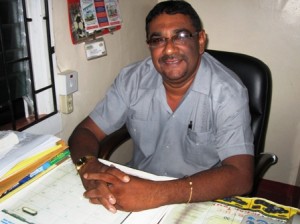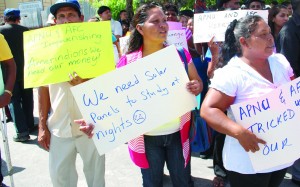
Region Six Chairman David Armogan said the Gy$ 20 billion that the combined opposition, the A Partnership for National Unity (APNU) and the Alliance For Change (AFC) “butchered” from the 2012 National Budget will have a direct impact on the region.
Speaking at a recent meeting with residents of East Canje, Armogan said students are among those who will be affected, notably those who are preparing to sit the Caribbean Secondary Education Certificate (CSEC).
“You know NCN since last year has been running a channel called the Learning Channel, in which your children can look at that and learn Mathematics, English, and social studies and so on… well, the cut in the budget which now only gives NCN one dollar will definitely result in those programmes being thrown out.”
The regional chairman said that apart from those programmes, others will also be affected. “Those of you who are accustomed to watching boxing, cricket, and other sports on NCN will have to suffer because of the scissors of Ramjattan and Granger,” he told the residents, who from all appearances were disgusted by the opposition’s behaviour.
Sadly, he said, some staff will have to be sent home, many of them Berbicians, and more so, residents of East Canje.
“GINA too they have chopped to one dollar to ensure that whatever is happening in the government, nobody knows about it.” He said the opposition parties have been calling for more information to be given to the public on how government spends its money, but shamefully, they are cutting the information off to the public.
The regional chairman said opposition leaders seem bent on stymieing development, and in a stroke of hypocrisy, they are accusing the government of not doing enough.
Finance Minister Dr Ashni Singh explained that the government has embarked on a series of meetings to keep citizens fully informed of recent political developments.




